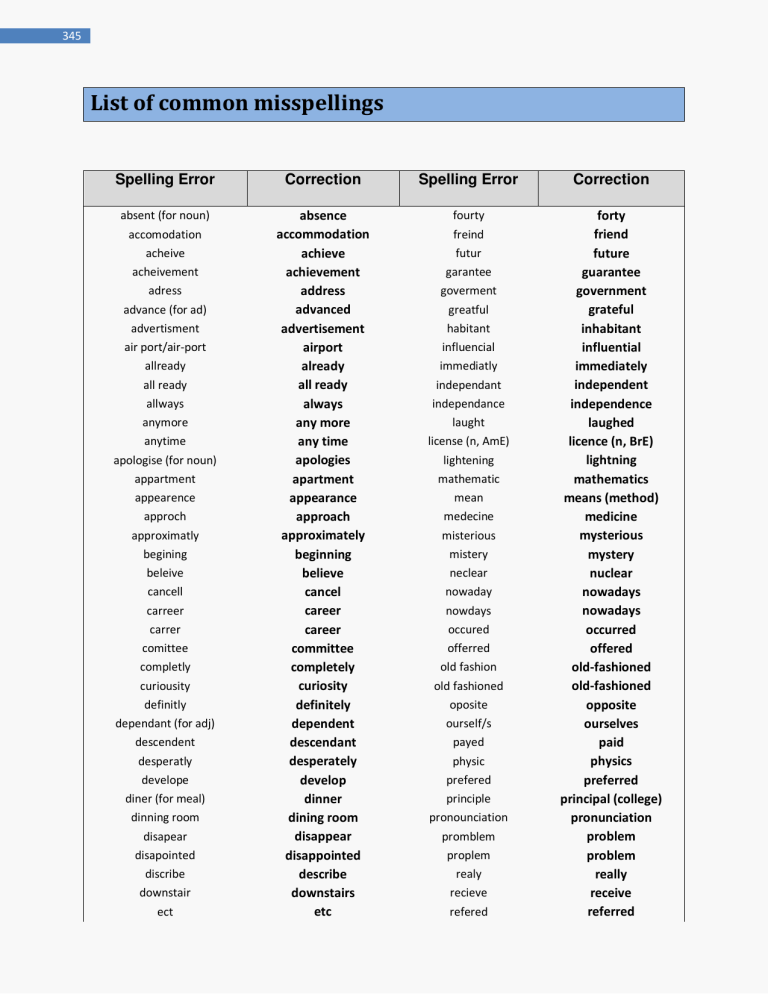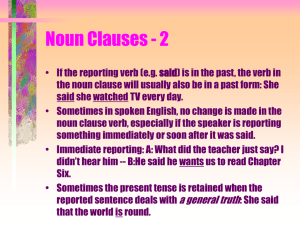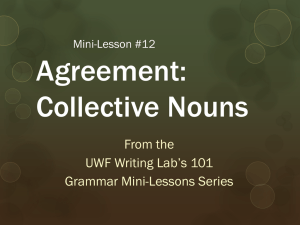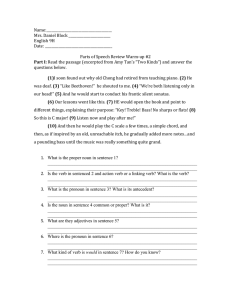
345 List of common misspellings Spelling Error Correction Spelling Error Correction absent (for noun) accomodation acheive acheivement adress advance (for ad) advertisment air port/air-port allready absence accommodation achieve achievement address advanced advertisement airport already all ready always any more any time apologies apartment appearance approach approximately beginning believe cancel career career committee completely curiosity definitely dependent descendant desperately develop dinner dining room disappear disappointed describe downstairs etc fourty freind futur garantee goverment greatful habitant influencial immediatly forty friend future guarantee government grateful inhabitant influential immediately independent independence laughed licence (n, BrE) lightning mathematics means (method) medicine mysterious mystery nuclear nowadays nowadays occurred offered old-fashioned old-fashioned opposite ourselves paid physics preferred principal (college) pronunciation problem problem really receive referred all ready allways anymore anytime apologise (for noun) appartment appearence approch approximatly begining beleive cancell carreer carrer comittee completly curiousity definitly dependant (for adj) descendent desperatly develope diner (for meal) dinning room disapear disapointed discribe downstair ect independant independance laught license (n, AmE) lightening mathematic mean medecine misterious mistery neclear nowaday nowdays occured offerred old fashion old fashioned oposite ourself/s payed physic prefered principle pronounciation promblem proplem realy recieve refered 346 embarass/-ed/-ing exite exited exiting exitment fondamental forsee forth fortunately strenght succesful surprise teaher technic thelf theirself/s themself thier/ther ther therefor throught tittle transfered truely tryed uncurable undoubtly unfortunatly unpolite untill weeding well come wether wether wich wifes wolfs wonderfull writting yourselfs embarrass/-ed/-ing excite excited exciting excitement fundamental foresee fourth fortunately strength successful surprised (adj) teacher technique thief themselves themselves their there therefore through title transferred truly tried incurable undoubtedly unfortunately impolite until wedding welcome weather whether which wives wolves wonderful writing yourselves responsability responsable resturant seperate shinning sincerly sometime specialy stoped all ready allright an other any body anymore anytime back ground base ball basket ball boy friend boy-friend business man business woman can not country side eventhough foot-ball further more girl friend girl-friend grand father grand-father grand mother grand-mother grand parent grand-parent head quarters home land home sick infact inspite of more over no body rain coat soft ball some body responsibility responsible restaurant separate shining sincerely sometimes specially stopped all ready all right another anybody any more any time background baseball basketball boyfriend boyfriend businessman businesswoman cannot, can’t countryside even though football furthermore girlfriend girlfriend grandfather grandfather grandmother grandmother grandparent grandparent headquarters homeland homesick in fact in spite of moreover nobody raincoat softball somebody 347 some thing some times thankyou there fore under ground under stand where as wild life work force worth while something sometimes thank you therefore underground understand whereas wildlife workforce worthwhile 348 GLOSSARY abstract noun a word used to refer to an idea or feeling (not something that you can actually see or touch): e.g. danger, jealousy, luck, peace, success. active adjective adverb See PASSIVE 1 2 3 4 affirmative See NEGATIVE agree See NUMBER auxiliary verb See MAIN VERB bare infinitive See INFINITIVE clause colloquial comparative compound conditional 1 2 conjunction context a word which describes someone or something: ‘In his new grey suit, he looked very smart.’ a word which tells us ‘how’, ‘when’, ‘how often’, ‘where’, etc:’ Drink it slowly.’ ‘She usually arrives late.’ a word like very, quite, too, slightly, which says something about degree or extent: ‘very cold’, ‘rather suddenly’, ‘completely destroyed’ . a word like probably, definitely, fortunately, surprisingly, which says something about the speaker’s attitude or degree of certainty: ‘Perhaps she’s changed her mind.’ ‘Unfortunately, the car wouldn’t start.’ word like however, therefore, also, furthermore, which shows how two points or ideas are related: ‘Both hotels are very expensive. Also, they are a long way from the city centre.’ 1 2 a string of words, usually with a subject and verb, which forms either a sentence by itself (‘We’re going out tonight.’) or a major part of a sentence (‘if it doesn’t rain’). See also MAIN CLAUSE, SUBORDINATE CLAUSE A colloquial word or expression is used mainly in everyday conversation, and is not appropriate in formal styles. the form of an adjective or adverb that is used to express a greater or smaller degree. Most comparatives end in -er or begin with more/less: ‘The new cameras are easier to use but the old ones are more reliable.’ See also SUPERLATIVE a word which is made up of two or more parts: e.g. boyfriend, headache, washing machine, air travel, ‘a five-minute wait’. a clause beginning with a word such as if or unless, or a sentence containing such a clause verb form beginning with would/should: ‘They would like to see a copy of the report.’ ‘Would you like a drink?’ a word like and, but, because, since, when, as soon as, if, which joins two points or ideas together or shows how they are related to each other: ‘We had some cheese and a few biscuits.’ ‘I’ll phone you when I get back.’ ‘Although he was late, he made no attempt to apologize.’ the word or words which come immediately before and/or after a particular word or phrase the social situation in which language is used 349 countable direct object direct speech double negative emphasis finite first person fixed phrase formal countable noun (also ‘count noun’) is one which has both singular and plural forms: e.g. ‘apple’ - ‘apples’, ‘child’ - ‘children’. See also UNCOUNTABLE See OBJECT speech that is written down in the exact words of the original speaker. The words are usually enclosed within inverted commas: "My purse has been stolen." Indirect speech (also called ‘reported speech’) is speech that is written down in the words of the reporter, with changes to tenses, pronouns, adverbs etc: She said that her purse had been stolen. the incorrect use of two negative words instead of one, the incorrect use of two negative words instead of one, e.g. ‘Nobody never ...’ instead of ‘Nobody ever ...’ the special force that is sometimes given to a word or phrase to draw it to the listener’s or reader’s attention: ‘I do hope you feel better soon.’ ‘They themselves have never been to Italy.’ A finite verb is one which has a subject and a tense: e.g. ‘takes’, ‘took’, ‘has taken’, ‘was being taken’. See PERSON two or more words which are always used together and cannot be changed in any way: e.g. ‘as a matter of fact’, ‘on the contrary’ (NOT ‘on a contrary’, ‘on the contraries’, etc) Formal styles are those in which words and structures are chosen with care, as in business letters, official reports, academic textbooks, news broadcasts, public ceremonies, etc. See also INFORMAL identifying relative clause indirect object indirect speech infinitive informal -ing form intransitive main clause main verb modify See RELATIVE CLAUSE See OBJECT See DIERCT SPEECH the form of a verb that you look up in a dictionary. There are two types of infinitive, the ‘bare infinitive’ (e.g. ‘come’, ‘take’, ‘send’) and the ‘to-infinitive’ (e.g. ‘to come’, ‘to take’, ‘to send’), sometimes shown in this book as ‘to-v’, Informal styles are those in which language is used in a casual, spontaneous way, as in everyday conversation and letters to friends. See also FORMAL the form of a verb which the form of a verb which ends in ‘-ing’, e.g. ‘coming’, ‘taking’, ‘sending’, sometimes shown in this book as ‘v-ing’. When an -ing form is used as a noun, it is sometimes called a ‘gerund’: e.g. ‘I like reading.’ When an -ing form is used as a verb’; it is sometimes called a present participle: ‘I saw her talking to Dr Edwards this morning.’ An intransitive verb is one that is used without an object, e.g. ‘Wait here until I come back.’ See also TRANSITIVE (also ‘independent clause’) a string of words containing a subject and verb, which can stand alone as a sentence: e.g. ‘I’m going out tonight.’ See also SUBORDINATE CLAUSE a verb like ‘speak’, ‘take’ or ‘go’ which can be used as the only verb in a sentence: ‘She speaks German and Russian.’ ‘He took her to the airport.’ A main verb is often preceded by one or more auxiliary verbs such as ‘be’, ‘do’, ‘have’, ‘will’, ‘may’, ‘must’: ‘She is learning French.’ ‘He must have taken her to the airport.’ ‘Do you know their address?’ (also ‘qualify’) A word is often used with one or more other words which provide additional information about it or limit its meaning. In such cases, the word is said to be ‘modified’. For example, in ‘Japanese cars are quite expensive’, ‘cars’ is modified by ‘Japanese’, and 350 ‘expensive’ is modified by ‘quite’. The words ‘Japanese’ and ‘quite’ are used as modifiers. In ‘a luxury hotel’, the first noun (‘luxury’) modifies the second noun (‘hotel’). A verb is negative when it is used with not, never, rarely, etc: ‘She never answers my questions.’ A clause or sentence containing a negative verb is also negative. Compare: He wanted to go to bed.’ (affirmative verb/sentence); ‘He didn’t want to go to bed.’ (negative verb/sentence) negative non-identifying relative clause See RELATIVE CLAUSE noun noun phrase a word used to refer to a person, animal, place, thing, etc: ‘Each visitor received a small gift.’ a group of words in which the main word is a noun or pronoun: ‘Each visitor received a small gift.’ ‘Have you finished reading the book I lent you?’ the contrast between words which are singular (e.g. ‘child’) and words which are plural (‘children’). Two words are said to ‘agree in number’ when they are both singular or both plural. Compare: ‘The child was playing in the garden’ (singular); ‘The children were playi.ng in the garden’ (plural). The object (also ‘direct object’) of a sentence is the person or thing that is directly affected by the action of the verb: ‘She bought a packet of envelopes’; ‘I’d already seen the film’. An ‘indirect object’ is usually the person or thing that receives the direct object: ‘She sent my mother a postcard.’ ‘He gave her a diamond ring.’ ‘We told them the news.’ number object participle See PAST PARTICIPLE, -ING FORM passive When the subject of a sentence ‘performs’ the action expressed by the verb, the verb and the sentence are said to be ‘active’: ‘Someone has stolen my watch.’ ‘The government spends a lot of money on cancer research.’ Sometimes the subject of a sentence does not perform the action expressed by the verb but ‘receives’ it: ‘My watch has been stolen.’ ‘A lot of money is spent on cancer research.’ In these cases, the verb and the sentence are said to be ‘passive’. the verb form that is used to make the present perfect and past perfect, and all passive structures: ‘She’s lost her address book.’ ‘I hadn’t seen her before.’ ‘Have the letters been posted yet?’ the verb form that is made with had and the past participle: ‘After everyone had gone, we began to tidy up.’ ‘If I’d known your address, I would’ve come to see you.’ See also PROGRESSIVE past participle past perfect past progressive See PROGRESSIVE past tense person phrase 1 2 plural plural noun possessive The past tense of a reqular verb ends in -ed and has the same form as the past participle: ‘cooked’, ‘thanked’, ‘opened’. The past tense of an irregular verb is formed in many different ways: ‘went’, ‘saw’, ‘thought’, ‘found’, ‘took’, ‘spoke’. See also PROGRESSIVE the contrast between words which refer to ourselves (e.g. I, we = ‘first person’), words which refer to the person we are talking to (e.g. you = ‘second person’), and words which refer to someone or something else (e.g. he, she, Mrs Robinson, the apple trees = ‘third person’). a group of words whose main word is a noun (‘many people’), main verb (‘has been written’), adjective (‘quite difficult’) or adverb (‘fairly soon’), or which begins with a preposition: (‘at six o’clock’, ‘in the garden’, ‘for political reasons’) two or more words which are often used together: ‘have a bath’, ‘make a mistake’, ‘it is obvious that’ See also FIXED PHRASE See NUMBER a noun which is always plural and does not have a singular form, e.g. trousers, scissors, goods, surroundings A possessive form or meaning is one which expresses ownership or close connection: ‘Is this your handbag?’ ‘Have you met her husband?’ ‘It’s Bob’s birthday tomorrow.’ ‘We had lunch at 351 preparatory subject preposition present perfect present progressive present simple progressive pronoun reflexive pronoun reflexive verb relative clause relative pronoun reporting verb second person simple singular subject subordinate clause superlative syllable Rosemary’s.’ Instead of using a clause as the subject of a sentence, it is often more natural to begin the sentence with it and put the clause later: ‘It’s amazing that nobody was injured.’ ‘It will be good to see you all again.’ When used in this way, it is called a preparatory subject. a word like at, from, for, during, into, in spite of which is used before a noun, pronoun, etc: ‘We went to the airport in a taxi. the verb form that is made with have and the past participle: ‘My watch has stopped.’ ‘Have you seen Alex this morning?’ See also PROGRESSIVE See PROGRESSIVE the verb form which has no endings apart from -s/-es with subjects such as ‘he’, ‘she’, ‘it’, ‘Mrs Robinson’ etc: ‘I play a lot of tennis.’ ‘The sun rises in the east and sets in the west.’ See also PROGRESSIVE (also ‘continuous’) a verb form made with be + -ing: ‘It was raining this morning.’ (past progressive); ‘Are you coming tonight?’ (present progressive); ‘I’ve been waiting here for over an hour.’ (present perfect progressive); ‘Before coming to London, she had been working in Paris.’ (past perfect progressive). See also SIMPLE a word like he, her, mine, themselves, some, who, which is used in place of a noun or noun phrase: ‘Ann was very upset when she heard the news.’ (‘she’ is the pronoun for ‘Ann’); ‘If Alex needs a red pen, there’s one in the drawer.’ (‘one’ is the pronoun for ‘a red pen’) a word like myself or ourselves that ends with -self or -selves: ‘I found myself a seat and sat down.’ a verb that is used with myself, herself, themselves etc: ‘You mustn’t blame yourself for the accident.’ a descriptive clause usually beginning with that, who, which, whose or whom. An ‘identifying’ relative clause answers the question ‘which?’ and identifies or defines the preceding noun: ‘The man who was carrying a torch showed us to our seats.’ A ‘non-identifying’ relative clause simply adds further information about the preceding noun: ‘The man, who was carrying a torch, showed us to our seats.’ a word like that, who, which, used at the beginning of a relative clause. See also RELATIVE CLAUSE a verb like say, answer, ask, complain which is used when reporting what someone has said, asked, etc: ‘She complained that she needed more time.’ ‘ "I can’t afford a new car," he replied.’ See PERSON A simple verb form does not have an -ing ending: e.g. ‘It rained all day.’ (past simple); ‘What time does the train arrive?’ (present simple); ‘He’s bought a new bicycle.’ (present perfect); ‘One of the books had fallen on the floor.’ (past perfect). See also PROGRESSIVE See NUMBER The subject of a sentence is the person, thing or idea that the sentence is about. In statements, the subject usually comes at the beginning and is followed by a verb: ‘These old newspapers should be thrown away.’ ‘The house they intend to buy is in Kensington.’ ‘Looking after a young child can be very tiring.’ See also PREPARATORY SUBJECT (also ‘dependent clause’) a string of words that cannot be used on its own as a sentence, but usually forms a major part of a sentence: ‘As soon as my exams are over, I’m going on holiday.’ Driving the wrong side of the road is dangerous.’ See also MAIN CLAUSE the form of an adjective or adverb that is used to express the greatest or smallest degree. Most superlative forms end in –est or begin with most/least: ‘It was the longest and most boring film I’d ever seen.’ See also COMPARATIVE A syllable is one or more speech sounds pronounced as one unit. For example, hat has one 352 that-clause third person to-infinitive to-v transitive uncountable verb v-ing vowel wh-clause wh-word syllable, jacket has two syllables, and cardigan has three. a subordinate clause beginning with that which does the job of a noun, pronoun, etc: ‘She told me that you don’t like her.’ ‘It’s amazing that nobody was injured.’ Sometimes, especially in informal styles, the word that may be left out: ‘She says (that) she’s looking for a new job.’ ‘It’s a pity (that) you won’t be coming.’ See PERSON See INFINITIVE See INFINITIVE A transitive verb is one that is used with an object, e.g. ‘She opened the drawer and took out a knife.’ See also INTRANSITIVE An uncountable noun is one which has no plural form and is not used with a/an: e.g. ‘We need some new furniture.’ ‘She needs advice.’ ‘Poverty can lead to unhappiness and despair.’ a word which refers to an action or a state: ‘She said that she felt ill.’ See -ING FORM (also ‘vowel sound’) a speech sound made when the breath escapes freely, without being blocked or restricted in the mouth or throat, a subordinate clause beginning with a wh-word, e.g. what, why, how, where, who: ‘Do you know where she lives?’ ‘What we need is a faster printer.’ See WH-CLAUSE






